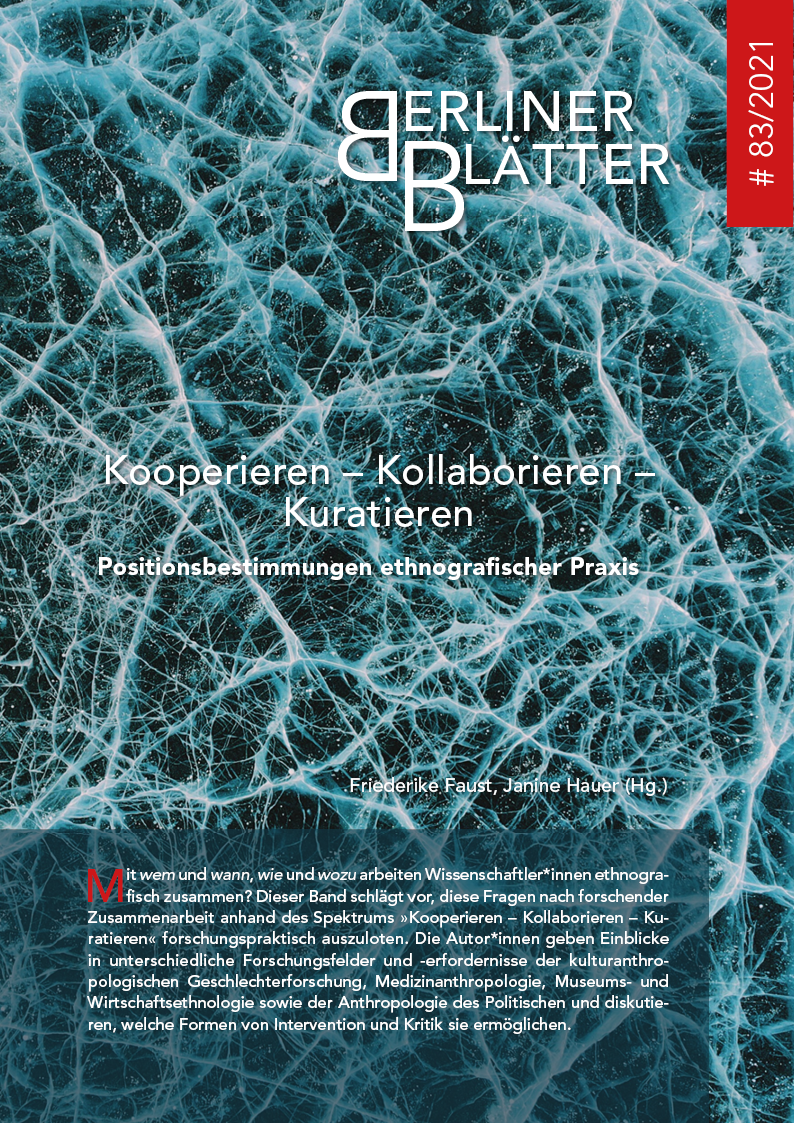Friction and its potential
Collaborative research with HIV/AIDS activists
Keywords:
Collaborative Anthropology, activism, HIV/AIDS, social movements, knowledge productionAbstract
How can cultural anthropologists contribute to the political struggles of social movements without losing sight of their other research goals? In this paper, we take our collaborative research with HIV/AIDS activists as a starting point to explore how scholars engaging with ethnographic and historical research can collaborate with social movement activists - politically, and with the aim of generating knowledge. To this end, we propose methodologically grasping collaboration as relations with "friction" (Tsing 2013) - i.e. as tense encounters across differences, which, although always unpredictable in their outcome, have epistemological and political potentialities. Using examples from this project, we show how an engaged cultural anthropology can contribute to a politics of coalition-building by bridging the boundaries between fields of knowledge, and between activism and academia while, at the same time, recognizing that all participants always pursue their own, shifting, and not necessarily congruent, goals.








